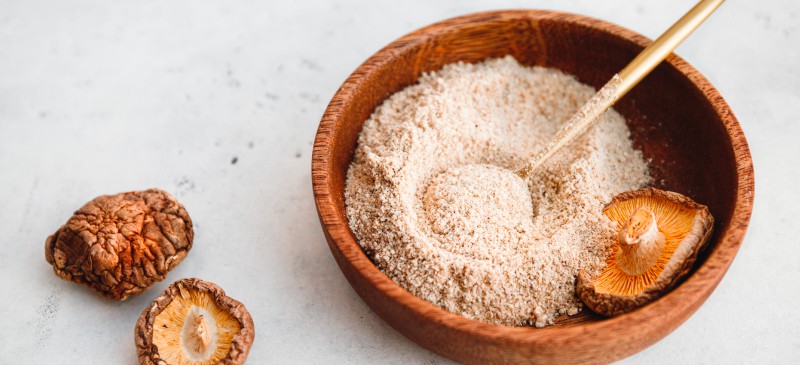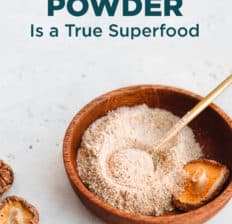This Dr. Axe content is medically reviewed or fact checked to ensure factually accurate information.
With strict editorial sourcing guidelines, we only link to academic research institutions, reputable media sites and, when research is available, medically peer-reviewed studies. Note that the numbers in parentheses (1, 2, etc.) are clickable links to these studies.
The information in our articles is NOT intended to replace a one-on-one relationship with a qualified health care professional and is not intended as medical advice.
This article is based on scientific evidence, written by experts and fact checked by our trained editorial staff. Note that the numbers in parentheses (1, 2, etc.) are clickable links to medically peer-reviewed studies.
Our team includes licensed nutritionists and dietitians, certified health education specialists, as well as certified strength and conditioning specialists, personal trainers and corrective exercise specialists. Our team aims to be not only thorough with its research, but also objective and unbiased.
The information in our articles is NOT intended to replace a one-on-one relationship with a qualified health care professional and is not intended as medical advice.
Mushroom Powder: The Versatile Superfood for Coffee & More
August 29, 2021

If you’ve been paying attention to the natural health market, you may have noticed a new trend emerging. Mushroom powder is popping up in coffee, powders, capsules and even beauty products.
Many are wondering: What is mushroom powder, and why would I want to use it?
Mushrooms are a group of superfoods with impressive nutrition contents and potential health benefits. They’re packed with disease-fighting and energizing nutrients.
That’s exactly why mushrooms are known as the “elixir of life” in Chinese medicine. They’ve been a part of traditional medicine for thousands of years.
What Is Mushroom Powder?
Mushroom powder is exactly what it sounds like — dried mushrooms that are pulverized into powder. You can get many types of mushroom powder, as it can be made with any type of culinary mushroom.
Why bother consuming mushroom powder instead of just adding mushrooms to your diet? In powder form, you get a higher concentration of nutrients.
Types/Varieties
There are several types of mushroom powder available in stores, and you can always dehydrate fresh mushrooms and make your own at home. In stores, you can find powders made with one type of mushrooms and blends that are made of several.
Shiitake
Shiitake is a popular dried mushroom because it’s affordable and contains all eight essential amino acids, along with a fatty acid called linoleic acid.
Shiitake mushrooms are known to increase satiety, making them great for weight loss. They also contain phytonutrients that support heart health and immune function.
Porcini
Porcini powder is commonly used to add flavor to broths, and sometimes it’s added to flour when making bread or pasta. They are known for their floury texture when ground.
Porcini mushrooms are rich in antioxidants, including beta-carotene, ascorbic acid and lycopene. They are also a good source of fiber and plant-based protein.
Chaga
Chaga has an earthy flavor, and it contains vanillin, the same compound in vanilla bean.
It is ranked one of the top foods for oxygen radical absorbent capacity. That means that it’s an excellent source of antioxidants and can therefore help in the prevention of disease.
Chaga mushroom works as an inflammation reducer, and eating them may even improve physical endurance.
Lion’s Mane
Lion’s mane is known as a nootropic food because of its brain-boosting properties. You’ll often see it in powdered form and added to mushroom coffee.
Research suggests that it may slow down cell degeneration in the brain, helping fight diseases like Alzheimer’s. Lion’s mane also supports heart and digestive health because of its anti-inflammatory effects.
Reishi
Reishi mushroom has been valued in Chinese medicine for thousands of years. It goes by the nickname “king of mushrooms” and serves as an adaptogenic mushroom that helps the body deal with the negative effects of stress.
These mushrooms are jam-packed with antioxidants and health-promoting compounds, like polysaccharides. Reishi powder is used to balance hormones, promote heart health and stabilize blood sugar levels.
Cordyceps
Cordyceps are a staple in holistic medicine and known as a superstar supplement that’s used to enhance athletic performance, reduce inflammation and promote cardiovascular health. They feature anti-inflammatory compounds and antioxidants that help fight disease, boost immune function and slow aging.
Mushroom Powder Benefits
1. Enhances Brain Function
Mushroom powder is well-known for its positive affects on brain function. Lion’s mane powder, for instance, has been found to reduce the impact of neurodegenerative diseases by slowing or reversing cell degeneration in the brain.
It is often used to promote mental clarity and focus. It’s a popular supplement for overall cognitive health.
2. Supports Immune Health
Mushrooms often contain polysaccharides, molecules that have immunomodulatory effects and may enhance immune system function.
Research on chaga shows that the mushroom can stimulate spleen lymphocytes that work to regulate the immune system and boost the body’s ability to fight off invading viruses and bacteria.
3. Eases Stress
Traditionally, mushrooms have been used to reduce stress and anxiety.
An animal study published in the International Journal of Medicinal Mushrooms found that reishi mushroom powder had significant anti-anxiety activity in mice. Researchers suggest that the anti-anxiety effects may be the result of the phenols and flavonoids present in reishi mushroom.
A study published in BMC Complementary Medicine and Therapies suggests that reishi has antidepressant potential and may help ease stress-induced anxiety.
4. Boosts Energy
Shiitake mushroom powder is a great source of vitamin B, so it helps support adrenal function and turn the nutrients you consume into useable energy. Mushroom powder supplements and coffees are often used to boost energy levels and beat brain fog.
Mushrooms are also known to improve exercise performance. The polysaccharides in mushrooms make them excellent foods for physical endurance.
5. Regulates Blood Sugar
Medicinal mushrooms are useful for managing diabetes because they have been shown to improve blood glucose levels and insulin sensitivity.
Research on reishi mushroom, for example, suggests that it’s able to decrease both blood sugar and insulin levels in mice. It was also able to modify enzymes that are involved in blood sugar control.
6. Supports Health Health
Research shows that there’s a strong link between mushrooms and heart health. Cordyceps mushroom powder, for example, could help prevent heart damage and lower LDL cholesterol.
Mushrooms have proven to be organ protectors that benefit the heart by fighting oxidative stress as well.
7. Slows Aging
The impressive antioxidant content in mushroom powder helps fight free radical damage and prevent oxidative stress. Not only does this help prevent disease, but it helps slow the signs of aging and optimizes overall health.
By promoting healthy aging, consuming reishi mushroom powder, for example, is known to boost longevity. Studies reveal that it affects life span extension by reducing oxidative stress and cellular damage throughout the body.
Mushrooms vs. Mushroom Powder
Mushroom powder is made from dehydrated and ground mushrooms. A serving of the power provides a higher nutritional value because it’s much more concentrated.
One scoop of a blended mushroom powder can provide a range of health-promoting nutrients, including a long list of antioxidants, prebiotic fibers, amino acids and micronutrients. In its condensed form, it packs a nutritional punch.
How to Use (Dosage, Recipes)
Here’s the beauty of mushroom powder — it can be added to so many dishes. It has a mild, earthy flavor that blends well in many dishes and can even be added to beverages.
Treat it like a seasoning agent (like mushroom umami seasoning), and add it to scrambled eggs, soups, casseroles, sauces and sautéed vegetables. It offers a great meaty flavor and has a slew of health benefits.
Recently, mushrooms are being used in all sorts of products. You can find coffees, teas and protein powders made with mushroom powder.
Store-bought powders are added to recipes, coffees, hot chocolate blends, drink mixes and smoothies. Generally, two to three teaspoons of powder is consumed once a day to boost overall health. Don’t overdo it, though, and remember that it’s a concentrated version of whole mushrooms so a little goes a long way.
You may be wondering about the taste of mushroom coffee. Surprisingly, it doesn’t taste like mushrooms and serves as a less acidic way to get your morning caffeine.
Want to make your own mushroom powder at home? It’s very easy.
Purchase dehydrated mushrooms, and grind them into a fine powder. Then use the powder in everyday recipes for a boost of antioxidants and nutrients.
For storage, keep the powder in an airtight container.
Risks and Side Effects
A high-quality mushroom powder is considered safe when consumed in normal amounts. Read the product label carefully for dosage directions, and do not exceed the recommended dose.
Some mushrooms work to make the immune system more active, so people with autoimmune diseases should check with their doctors before using mushroom powder supplements.
If you experience any adverse side effects after consuming mushroom supplements, discontinue use immediately.
Conclusion
- Mushroom powder seasoning is gaining popularity because it’s a nutrition powerhouse that can be added to a ton of recipes and beverages. You’ve heard about the health benefits of whole mushrooms, so think about the effects of a concentrated version.
- You can find mushroom powder blends or powders of individual mushrooms, including chaga, reishi, cordyseps, porcini and lion’s mane.
- Mushroom seasoning is jam-packed with antioxidants, protein, fiber, amino acids and micronutrients, including B vitamins.


